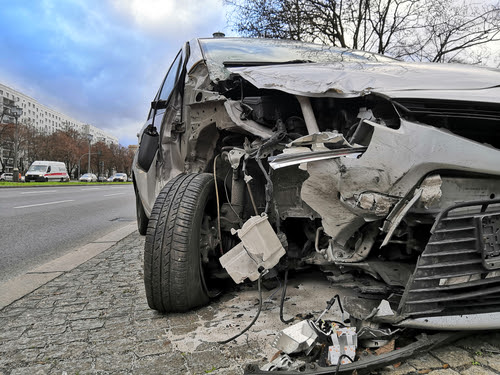Two drivers were killed in a wrong-way car accident in Wake County on Sunday, October 15th. Troopers from the North Carolina Highway Patrol responded to the two-vehicle crash in the area of Barbour Store Road and Old Stage Road.
How often do wrong-way accidents take place in North Carolina?
According to a local source, Willow Springs resident 53-year-old Angela Hinton was traveling southbound in a 2022 GMC Acadia when, for reasons that have yet to be determined, she drifted across the centerline directly into the path of an oncoming 2007 Chevy Suburban.
Hinton and the driver of the Suburban, Gilberto Galvan, 25, of Angier, both died at the scene.
Four of the passengers in the Suburban were transported to WakeMed in unknown conditions.
NCHP said that speed was not a factor in this accident but driver impairment has not yet been ruled out.
If you were hurt or lost a relative due to a wrong-way driver, contact the North Carolina car accident lawyers at Shapiro, Washburn & Sharp. We can ensure your right compensation is protected. Call us to schedule a free case review with a skilled member of our personal injury team.
How Do Wrong-Way Accidents Happen?
Wrong-way accidents seem like they should be highly improbable. Road signage is prevalent almost everywhere you go and even if it isn’t, drivers can take their cue from the direction of existing traffic.
Nevertheless, a report published by the Insurance Information Institute, shows that motorists who entered a road from the wrong direction or drove on the wrong side of a roadway were the source of more than 1,170 deadly traffic accidents in 2018. The four leading causes of these fatal wrong-way accidents were:
- Distracted driving: Anytime a driver is preoccupied with their mobile phone or anything other than the task at hand, they are at risk of missing traffic lights, road signs, and other important details.
- Driving under the influence: Being “under the influence” can refer to illegal drugs, legal drugs, or alcohol. All of these have the ability to negatively impact a driver’s attitude, reflexes, decision-making abilities, and judgment.
- Aggressive driving: Driving the wrong way is sometimes a deliberate act. Drivers who are aggressive or prone to road rage might drive on the wrong side of the road because they are in a rush or have lost their temper.
- Being unfamiliar with an area: If a driver is new to an area, they might get confused, particularly if the road involves roundabouts or other unusual features.
What Damages Are Available in a Wrong-Way Accident?
If you are considering filing a lawsuit, you are most likely curious about what forms of financial compensation you might be entitled to. In a wrong-way accident case, there are generally two kinds of compensable damages available:
Economic Damages
With unanticipated medical bills and time away from work, wrong-way collisions can be extremely costly. Although every accident is different, most victims are eligible to seek financial compensation for the following types of economic damages:
- Medical expenses: These should include your current medical bills as well as any you expect to receive in the future.
- Lost wages and benefits: This includes the pay you would have earned by working had the accident not occurred as well as consideration of sick days and other benefits related to your job.
- Diminished earning capacity: These damages come into play if your injuries are severe enough to prevent you from being gainfully employed or force you to take a job that does not pay as well as the one you previously held.
- Property damage: This includes the cost of repairs to or replacement of your vehicle as well as any other property that was damaged in the accident.
Non-Economic Damages
In addition to physical injuries, wrong-way accidents often leave their victims with some form of psychological trauma. Some victims are able to improve through treatment while others never fully recover. Non-economic damages account for these and other similar, intangible losses, including:
- Pain and suffering: You could receive damages for pain and suffering if your injuries were physically or mentally traumatic or if the accident caused emotional anguish.
- Disfigurement or scarring: Many accident victims are left with permanent scars or disfigurements that affect their self-image and range of motion.
- Permanent disability: These damages would apply if you will never fully recover the range of physical capabilities you had before the accident.
Talk to a Reputable Attorney
An experienced North Carolina car accident attorney at Shapiro, Washburn & Sharp can help you accurately quantify your damages and address any other concerns you have about your personal injury case. North Carolina gives you a limited amount of time to file a lawsuit, so schedule your free consultation today by calling us at (833) 997-1774.
